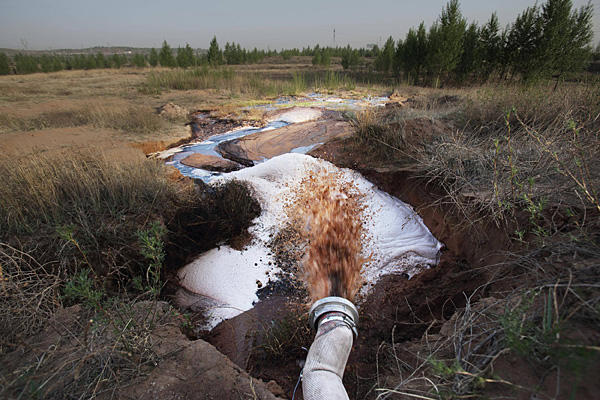
A pipe discharges factory waste water from the Shenhua coal-to-liquid project into a stream in the hills in Ordos in the inner Mongolia. Photograph: Qiu Bo/Greenpeace
Number of groundwater sites of poor or extremely poor quality increases to 59.6%, Chinese government says
theguardian.com - by Jonathan Kaiman - April 23, 2014
Nearly 60% of China’s underground water is polluted, state media has reported, underscoring the severity of the country’s environmental woes.
The country’s land and resources ministry found that among 4,778 testing spots in 203 cities, 44% had “relatively poor” underground water quality; the groundwater in another 15.7% tested as “very poor”.
Water quality improved year-on-year at 647 spots, and worsened in 754 spots, the ministry said.
(READ COMPLETE ARTICLE)
Recent Comments